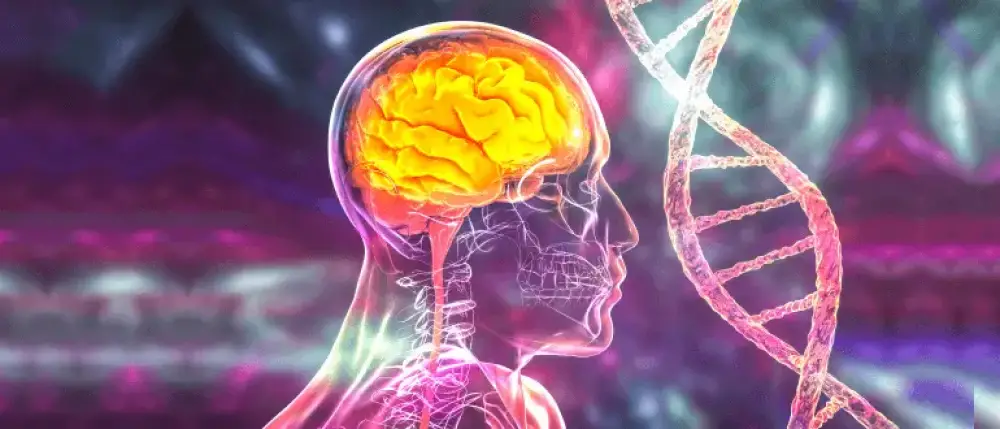The human nervous system is a complicated system that helps regulate and coordinate bodily activities. Being your body’s command centre, your nervous system controls your thoughts, responses, movements and other body systems such as digestion, sexual development and breathing. Many diseases can impact your nervous system organs– brain, sensory organs and spinal cord. These are connected by neurons, which act to transmit neural signals around the body. When you experience an injury in your nervous system, it gets challenging for your nervous system to send messages accurately. You start to feel pain, tingling, or numbness in such conditions. Sometimes you might not even be able to move your body which results in paralysis.
This article sheds light on the diseases affecting the nervous system. Read on to get an overview of them.
What is the Nervous System?
Your nervous system works as a communication source that helps different parts of your body communicate. Signals in your nervous system are sent through a complicated network of nerve cells known as neurons.
Your nervous system is divided into two parts. The two parts are-
Central Nervous System- The central nervous system has a brain and spinal cord that helps analyse and respond to environmental and internal information. You can also consider it as your body’s main source of communication that keeps you aware.
Peripheral Nervous System- The peripheral nervous system comprises the remaining nerve tissue outside your spinal cord and brain. It aids in transmitting information from the central nervous system to the rest of your body and contrariwise. It also includes two parts. They are Somatic Nervous System and Autonomic Nervous System. The somatic nervous system helps send signals from your CNS to skeletal muscles so that you can react to the things happening in your environment. In contrast, the autonomous nervous system takes control of your involuntary body functions such as digestion, blood pressure and heart rate.
List of Diseases Affecting Nervous System
There are over 600 diseases of the nervous system called neurological diseases. They have a heavy impact on you and your body. Over the years, people with neurological disorders have taken a sharp leap due to many factors, and ageing is the most prevalent. The diseases with the heaviest impact are-
- Dementias and Alzheimer's disease
- Stroke
- Migraine
There are various types of neurological diseases. Let’s learn about the 5 most prevalent diseases of the nervous system which may develop nervous disorders-
Diabetes: There are good chances that people with diabetes can experience damage if diabetes doesn’t remain controlled. Endocrine system disease directly results in nerve damage, leading to diabetic neuropathy. This disorder usually affects the functioning of the limbs and other body parts.
Bell’s Palsy: This condition causes weakness or paralysis on either side of your face. It is caused due to damage or inflammation to the facial nerve. It is usually temporary, as many people start feeling better in 2 weeks and recover in a few months. However, many people don’t recover completely and are left with weakness or paralysis on the affected side of the face.
Lupus: Lupus is a disease that attacks and damages people's nervous system. This long-term autoimmune disease harms healthy tissues, causing inflammation and swelling.
Stroke: Stroke affects the nervous system in several ways. It attacks the nerve cells in the brain tissue, sending inaccurate information to the brain.
Alzheimer’s Disease: Alzheimer’s disease is one of the kinds of dementia that affects your cognitive skills, ability to perform everyday tasks and behaviour. It is caused due to build-up of excessive proteins in your brain, which worsens gradually.
Symptoms of Nervous System Weakness
While experiencing a nerve disorder, you may go through the following nerve disorder symptoms-
- Burning sensation
- Altered or loss of smell and taste
- Confusion or dizziness
- Imbalance
- Tingling sensation or numbness
- Involuntary muscle contraction
- Changed level of consciousness
- Pain
- Paralysis
Treatment for Nervous Disorder
Healthy changes in lifestyle will help you avoid or minimise the effects of damaged nervous systems and be the most effective therapy option for neurological illnesses that you can take. You might undergo physiotherapy to reduce your symptoms and restore normal nervous system function.
The doctor's drugs can also help you recover your body's function by preventing the condition from escalating. Apart from that, pain management treatment helps control your suffering. Other therapeutic possibilities include cognitive therapy, neuroleptics, and so forth.
How to Keep the Nervous System Healthy?
Now that you know, the nervous system is the primary information-processing hub in the body. Thus, you must take care of it to maintain optimum mobility. You can do this by following a healthy diet, avoiding drinking, stopping smoking, and abstaining from narcotics. You must also keep your diabetes under control. It will assist you in avoiding nerve injury in the future.
>> Also Know: All You Should Know About Migraine - Its Symptoms and Cure
Conclusion
The nervous system is an essential part of your body that allows us to move your arms and legs. Many disorders can harm your neurological system, leading to various additional problems. So, if you see any nerve disease indications, call your doctor right once. If you are equipped with a comprehensive health insurance plan by Care Health Insurance, you will not have to bear the expenses during your treatment out of your pocket. So, do not ever go unarmed during a medical emergency.
Disclaimer: The information mentioned above is for reference purposes only. Please carefully verify the policy details with the official prospectus and read the terms and conditions. Claim approval is subject to the underwriter's discretion.
